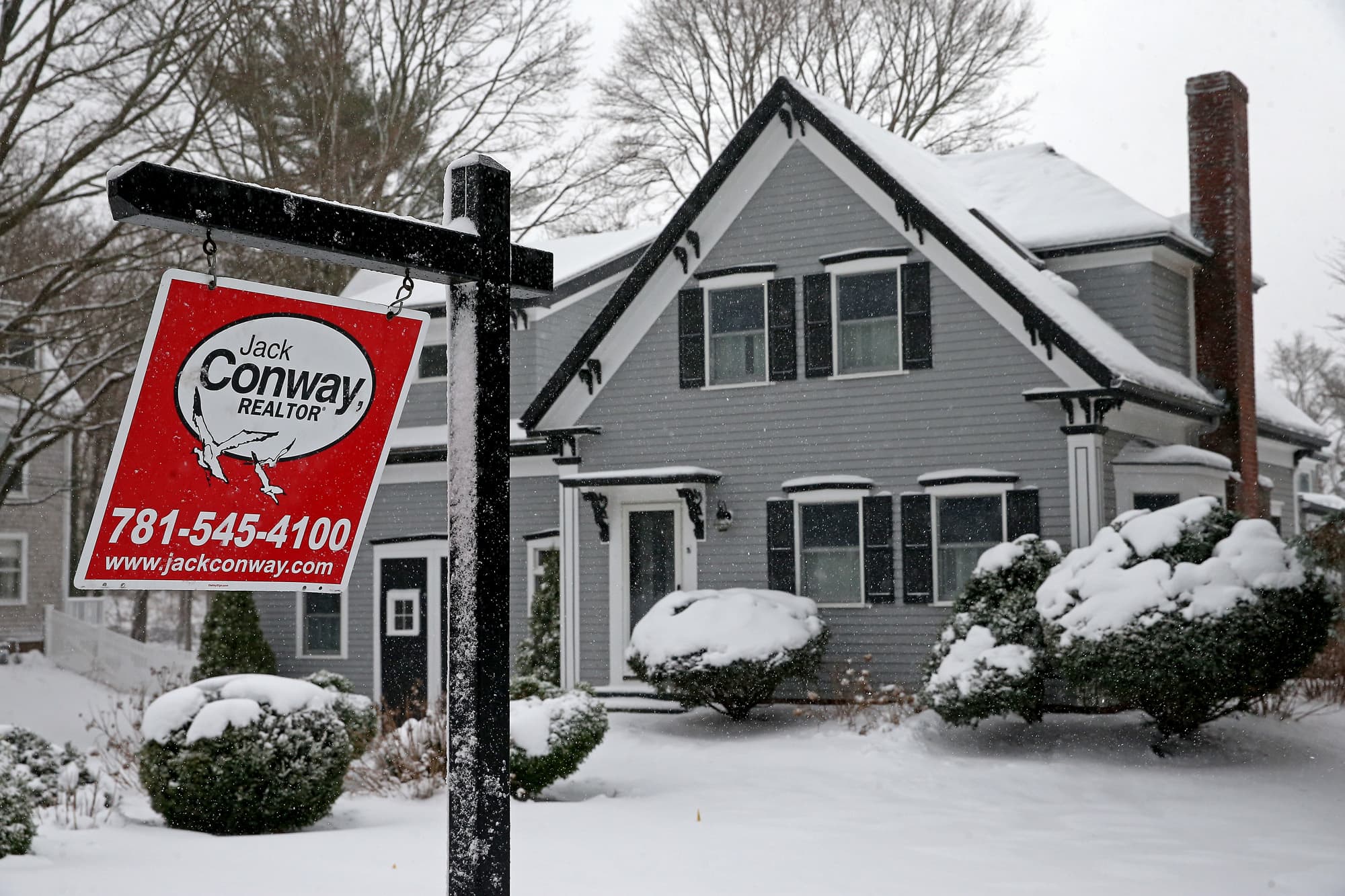
A house for sale on December 17, 2020 in Scituate, Massachusetts.
Matt Stone | MediaNews Group | Getty Images
After five consecutive months of gains, closed sales of existing homes turned lower in November.
They fell 2.5% on a month-to-month basis to a seasonally adjusted annualized rate of 6.69 million units, according to the National Association of Realtors. Sales were a strong 25.8% higher from a year earlier.
While demand for homes is still high, fueled in part by the stay-at-home culture of the coronavirus pandemic, supply is incredibly low. That is hurting sales and affordability.
“This latest decline could be due to the fact that home prices are rising way fast. It could also be that job creation began to stall in the last couple of months, so consumer confidence was dented,” said Lawrence Yun, chief economist for the association. “No alarm or anything worrisome about the latest monthly decline.”
There were just 1.28 million homes available for sale at the end of November. That is down 22% from a year earlier and represents a 2.3-month supply at the current sales pace. That’s the lowest inventory count since the Realtors began tracking this metric in 1982. The number of new listings is actually up about 10% from November 2019, but demand is sucking up that supply quickly.
Homes sold at the fastest pace on record, spending an average of just 21 days on the market. Last year, homes were selling in 38 days, which was also considered fast.
The growing imbalance between supply and demand kept home prices rising faster than what might be healthy for the market. The median price of an existing home sold in November was $310,800, a 14.6% increase from November 2019.
This measure of the median price is indicative of where sales are most active, which is on the higher end of the market. Sales of homes priced under $100,000 were down 22% from a year earlier. Those priced $100,000 to $250,000 were up just 2%. Sales on the higher end of the market — $750,000 to $1 million — were up 85% from a year ago.
Low mortgage rates are helping fuel demand at every price. The average rate on the 30-year fixed mortgage was slightly over 3% for much of October but then sank in November to the 2% range and hovered around record lows for most of the month. That gave buyers more purchasing power, but also added heat to already overheating home prices.
Sales of newly built homes in October, as measured by signed contracts, were a striking 41.5% higher than October 2019, according to the U.S. Census. Builders have been benefitting from the shortage of existing homes for sale, but they are struggling to keep up with the demand.
Even though December marks the traditionally slower season in housing, buyer foot traffic as measured by lock-boxes on the front door of homes for sale was up 16% from a year ago.
The National Association of Realtors is now predicting total 2020 home sales to total about 5.7 million, the highest level in 14 years.
“Circumstances are far from being back to the pre-pandemic normal,” said Yun. “However, the latest stimulus package and with the vaccine distribution underway, and a very strong demand for homeownership still prevalent, robust growth is forthcoming for 2021.”




